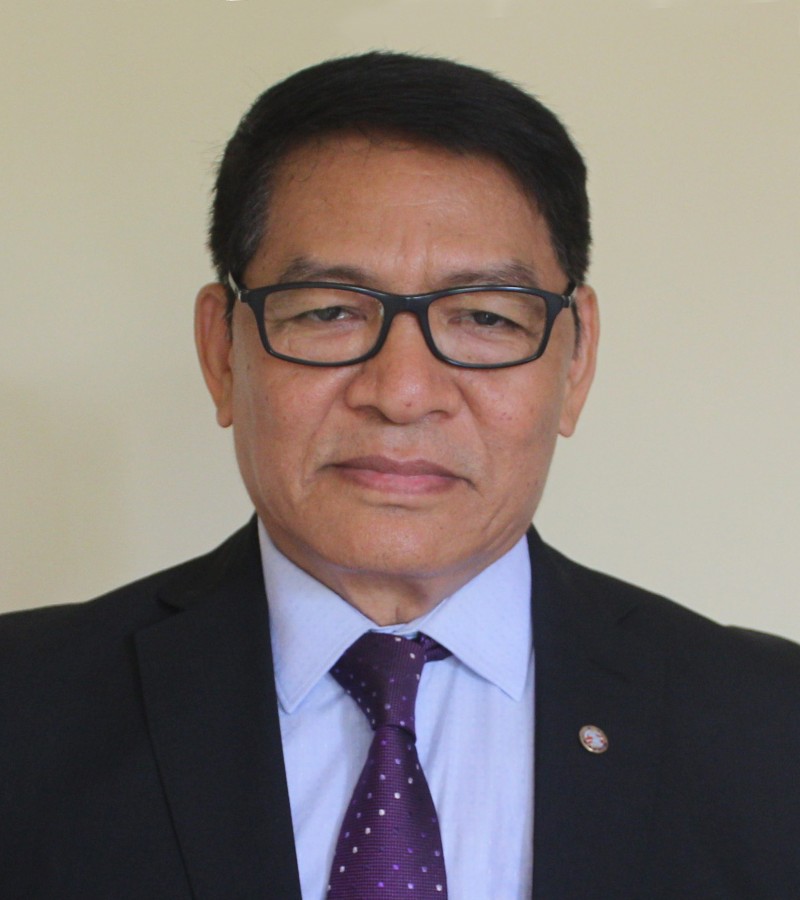Editorial
We wish the Pope had spoken out little bit more
Opinion | Editorial | John S. Shilshi | 14-Jan-2021

In his customary Urbi et Orbi address on Christmas day, Pope Francis spoke about the sufferings of mankind due to war, human rights violations, displacement, internal conflicts and natural calamities. The Pope took his world audience to Syria, Iraq, Yemen, Libya, Israel, Palestine, Lebanon, Nagorno-Karabakh, Burkino Faso, Mali, Niger, Ethiopia, Mozambique, South Sudan, Nigeria, Cameroon, Chile, Venezuela, the Philippines and Vietnam, countries that has experienced human sufferings in recent times on account of those mentioned above. He also mentioned the Yazidis, who are targets of the ISIS, and the Rohingyas, who have been victims of majority-community genocide and dislodged from their original abodes in Myanmar. The Pope unfortunately missed out the Uyghurs of Xinjiang Autonomous Region in China, where not only is religious persecution rampant, but also social profiling and selective targeting that have become the norm rather than exception. In his book “Let us Dream: The Path to a Better Future”, released ahead of Christmas, Pope Francis did mention the plights of Uyghurs, and China had reacted sharply, stating that the Pope’s comments were without basis. Could this fury of the world’s most powerful dictator Xi Jingping, be reason for the Pope to not have mentioned the issue in his Christmas address?
Ironically, in an era when human race across the world is clamoring for religious freedom even within fundamentally inclined States, this 21st century trend has had little impact on the plights of the Uyghurs, a Muslim minority in China’s western province. They have been subjected to religious persecution, repression and social profiling – more severely from the year 2016, as the likelihood of Xi Jingping holding the dictatorial position for lifetime became evident. Stringent and restrictive executive orders to curtail religious freedom - parents not being allowed to name their newborns with Muslim names such as Irfan, Imran, Yusuf etc.; Islamic clergies not being allowed to keep beards beyond standard length prescribed by the government; religious functions during Eid etc. allowed only in places earmarked by the government; restriction on diet and attire, and forceful sterilization of women to prevent growth in Muslim population etc. – have been ruthlessly imposed. Those who ventured outside China were interned in concentration camps on their return, in fulfillment of what is infamously known as ‘patriotic re-education’. Such forceful regimentations were particularly severe on those who went out of China and spent time in Egypt, Turkey and Syria. (Egypt is considered as the hub of Islamic learning, while Turkey and Syria are suspected as countries that help Muslims from other countries to imbibe fundamental mindsets.) On the social front, Han Chinese are encouraged to marry Uyghur women and ensure that they are oriented to the Chinese way of life as desired by the Communist ideology.
Despite detailed and confirmed reports of such happenings in China, Muslim countries are surprisingly quiet. The only reason one can fathom for this behaviour is, unfortunately, materialistic needs and ambitions. The Muslim world is blinded by Beijing’s massive investments in the Middle East, Asia, Africa and beyond, where Muslim populations are widespread. To cite examples, Turkey’s President Recep Tayyip Erdogan’s criticism of China’s domestic policy on religion was silenced by a $1 billion swift bailout move extended by the Chinese Central Bank to stabilize the country’s ailing economy. Saudi Arabia is quiet because Beijing is a key partner in her “Vision 2030”agenda, besides being the biggest importer of Saudi Oil. Pakistan cannot badmouth China because the $36 billion investment for the China-Pakistan-Economic-Corridor (CPEC) is the largest any country has ever pledged for development in Pakistan so far. It’s the same situation for Indonesia, Malaysia and many African countries too. Quite simply, China has made use of its economic power to silence Muslim States of the world from speaking out against fellow Muslims being systematically denied their religious freedom within China. Most importantly, whenever the United Nations debates on the religious card of China in Xinjiang province, these Muslim countries throw their support for China. Thus the false narrative of China trying to prevent spillover of fundamental activities to her soil through such restrictive measures could never be defeated at the world body, despite the common knowledge that fighting terrorism and religious discriminations are two different games altogether.
With no country speaking up in favour of the Uyghurs, barring few western countries, Pope Francis’s concern about the situation in Xinjiang in his book, was widely welcomed the world over. Though mild in its reference, it was considered a path-breaking sane voice that came from none other than a man known for his straight talk on various issues confronting mankind. Therefore, while addressing the world and urging Christians to pray for all those suffering, yet choosing to omit the sweeping curbs on Uyghurs, was an inexplicable move by the Pope. We wish the Holy Father had avoided this oversight, as the omission is now increasingly being interpreted as a deliberate one, and perhaps, kowtowing to the might of China.
Leave a comment
